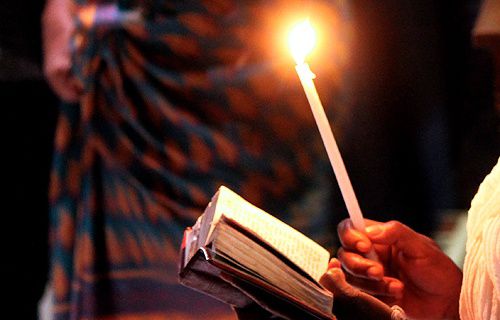The East and West must cooperate to save ancient Christian cultures in the Middle East, to secure peace, and to protect humanity as a whole, an expert in Aramaic culture insists. “If Christian communities in the Middle East are targeted, you will be sure that other communities will follow soon,” warned Iraqi-born Dr. Amal Marogy. A researcher and professor of Aramaic and Middle Eastern studies at Cambridge University and Kings College in Great Britain, Marogy currently heads the Aradin Charitable Trust that seeks to preserve the churches, art, and language that form the Aramaic culture. In a presentation at the Hudson Institute in Washington, D.C., she spoke of her work to preserve the last vestiges of Aramaic Christian culture in the Middle East. This includes a language that has lasted for 4,000 years and relies upon families and religious figures to pass it down to the next generation. The Aramaic language risks extinction now, largely due to the displacement of whole communities in the last 50 years in the region. This cultural holocaust was expedited by the invasion of Islamic State (ISIS) forces into Northern Iraq, which have displaced well over 100,000 Christians there since this summer and resulted in the mass looting and destruction of precious Christian churches, art, and shrines. In the midst of the violence, the elderly Christians are reluctant to be interviewed — or incapable altogether due to the trauma of recent events — and thus the Aramaic language risks being lost to history in a “crisis of culture” which would be detrimental to humanity as a whole, Marogy insisted. Stressing the importance of cooperation, Marogy cautioned against blaming Western negligence completely for the plight faced by Eastern Christians. She warned of a mindset that views the West as nothing more than “immoral,” “corrupt,” and “imperialistic.” Even some in the West hold this view, she said, and this is why some young Westerners seek to join terrorist groups like ISIS. “If everyone is thinking that the West is bad, then there’s no way of dialoguing,” Marogy told CNA in an interview after her talk. Middle Eastern Christians are “that missing link between the East and the West,” she said, and they faced challenges centuries ago that the West is facing now, such as living with an influx of Muslim immigrants. “We can teach you and we can teach the Muslims how to communicate and how to live together in spite of all these problems,” she said. Marogy also shared stories of Christian heroism amidst the persecution. Some Christians have “lost absolutely everything,” she said, but they still maintain that “it was worth it” to profess their beliefs rather than submit to the ISIS forces who demanded that they convert to Islam. In particular, she shared the story of two nuns who were taken hostage by ISIS but would not convert to Islam and had no money to pay the jizya tax for non-believers. “We are very happy to die for our faith,” they told their captors. Yet their guard was eventually won over by their witness, visiting them in their cell and asking them two days later if they needed anything. “They were the ones who defeated terrorism,” Marogy said.

